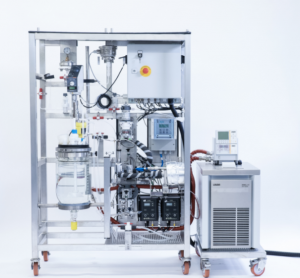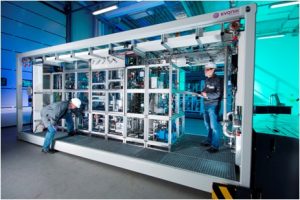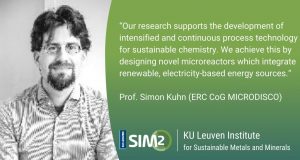Batch plants have been the main horsepower of the fine chemical industry, where flexibility is highly appreciated. Continuous manufacturing offers better performance but it is not as flexible when compared to batch manufacturing.
Modular plants represent a solution between batch and continuous processes. Modular plants are capable of working continuously and flexible enough to meet the market demand.
For instance, the F3 (Flexible, fast, future) is a consortium, which aimed at delivering modular chemical plants1. Modular plants have been described as LEGO blocks or “plug and play”1,2. The aim of modular plants is building standardized modules/sections, which can be adapted, interconnected, and reuse to any process.
Given that the equipment is standardized, engineering costs due to process and equipment design are reduced. Installation and construction are also reduced as well. Modular systems have a main PLC, which is able to control the interaction between the modules and is capable of recognizing new modules. Modular plants or standardized sections can be seen as a way to avoid repetitive engineering design.
Modular plants benefit as well from PI. Given that modular systems allow faster construction and implementation, the amount of time required between planning and starting the production is reduced, hence the amount of money invested can be recovered in a shorter time.
In the next two images, a general overview of two modular plants can be appreciated. Figure 1 depicts a single module component of a modular plant built at Microinnova. Figure 2 shows one plant built as part of the F3 project1.

Figure 1: Single module from a modular plant3

Figure 2: Equipment container from Evonik (F3 Project)1
Both plants are relatively small (compared to economies of scale) and if capacity were to be increased, numbering up could be used. Modular plants increases our repertoire of technologies and approaches, which could change the future of the chemical industry.
Sources:
- F3 Factory Plant. http://www.f3factory.com/scripts/pages/en/about_f3/aims_objectives/index.php (last accessed: June 1st 2018)
- Plants based on the “Lego principle”: Modular automation with valve terminals. http://www.ee.co.za/article/plants-based-lego-principle-modular-automation-valve-terminals.html (last accessed: June 1st 2018)
- http://www.microinnova.com/index.php/en/services/plant-engineering (last accessed: June 7th 2018)




